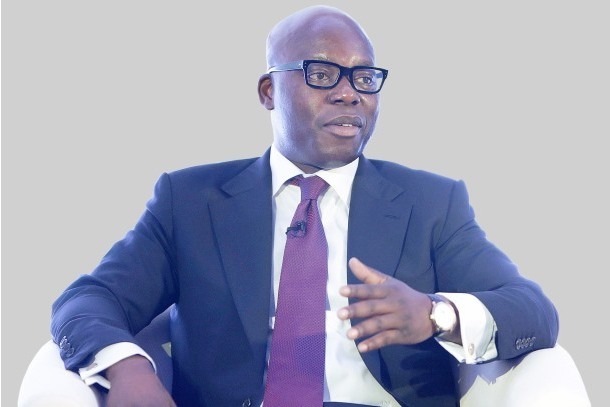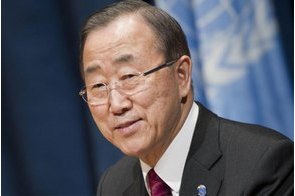Africa must project resilience in the global marketplace

Summary
To be a successful entrepreneur in Africa one must embody its historical warrior spirit.
World leaders and policymakers have always bestowed a national strategic importance to international trade. At the very least, access to global markets ensures domestic industrial growth and jobs. Advanced economies, for the most part, reckoned that a combination of economic and military power could be the surefire strategy for exercising influence on the global stage. Such hegemonic influence could procure further domestic economic opportunities amid extended global trade channels. Hence, the G-7 – the exclusive club of the largest industrialized economies – was conceived to leverage its power and stay at the top of the pecking order of global trade.
The formation of the G-20 – the bigger club of the global economic powerhouses – became a necessary response to the changing dynamics of global trade. Not only does the G-20 include some of the most advancing economies in the world, but collectively, these economies also account for approximately 80 percent of the gross world product (GWP). That is, 80 percent of the world’s trade, which includes intra-EU trade. The G-20 also accounts for about two-thirds of the world’s population. The group exercises major influence on economic and financial policies around the world, including in the African continent. The next summit of the G-20 is already scheduled for November 2015 in Antalya, Turkey.
The economist, Thomas Schelling, already noted more than 40 years ago that, “broadly defined to include investment, shipping, tourism, and the management of enterprises, trade is what most international relations are about. For that reason trade policy is national security policy.” (United States International Economic Policy in an Interdependent World, Volumes 1-2, Commission on Intern. Trade, 1971). Although Africa is marginalized, the strategic importance of global trade is not lost on African economies. Indeed, the continent has grown in recent years, especially with increased foreign direct investments (FDI), mainly from the West and China, but also from India, Brazil and Russia.
The devolution of economic power through the G-20 was auspicious for Africa. South Africa – the only African member of the group – could conceivably be a channel for African trading opportunities. Although the G-20 itself has failed, thus far, to live up to expectations as a viable alternative to the G-7, it continues to be at the heart of shifts in global power, particularly in emerging markets. The formation of other groupings of emerging market countries such as the BRICS (Brazil, Russia, India, China, and South Africa) and the CIVETS (Colombia, Indonesia, Vietnam, Egypt, Turkey, and South Africa) as well as the frontier emerging markets on the African continent, is another paradigm of the unfolding shifts in global economic power from the G-7 and G-20 blocs. In the words of Ian Bremmer, in his book, entitled, Every Nation for Itself: Winners and Losers in a G-Zero World (2012), when reflecting on the G-20, he imagines himself in an “enormous poker table where each player guards his stack of chips, watches the nineteen others, and waits for an opportunity to play the hand he has been dealt.” Bremmer goes on to say that the G-20 is no longer a global order, but a group of countries where every nation is for itself.
Emphasizing African opportunities
Michael Froman is right when he asserts in his article in Foreign Affairs titled, “The Strategic Logic of Trade” (November/ December, 2014), that “tectonic shifts, such as economic globalization, technological change, and the rise of emerging economies, have reshaped the international landscape.” With these realities in mind, Africa must be on guard and rush to adapt to this new global competitive landscape.
Unfortunately, Africans often tend to undermine their strengths and overlook their opportunities, while emphasizing their threats and believing in their weaknesses. They even tend to hesitate to look at their many victories and conquests, to tell their own positive stories. Hence, their story continues to go untold, despite the fact the examples are many, of those patriotic and self-starter business professionals and entrepreneurs who have succeeded in Africa and abroad.
Africa is now home to at least half of the world’s 20 fastest growing economies. Its information technology and communication sector is growing exponentially, with increasing private capital finding its way into Africa and its people. There are today, several examples of African business professionals who have not only created personal wealth for themselves, but have also established sustainable businesses that can be benchmarked alongside the leaders in the world. Nigeria’s Wale Tinubu’s Oando PLC, a Pan-African multinational leader in the oil and gas sector, is an example. In 2013, Forbes magazine named him The King of African Oil, followed by ASKMEN magazine, which named him as one of the Top Ten CEOs in the world. Just last year, he was awarded the Leadership Business Person of the Year, by the World Economic Forum (WEF). Prince Kofi Amoabeng is another example. He is the CEO of Unique Trust Bank of Ghana (UT Bank), a financial services company that has been rated as the best financial institution in Ghana. Prince Amoabeng left a military career to pursue a career in finance, evolving from an introductory service linking friends who had money to invest with those that needed to borrow for their businesses.
There are many other examples, such as South Africa’s Herman Mashaba, one of South Africa’s most celebrated entrepreneurs and founder of the well-known hair-care brand, Black Like Me. Strive Masiyiwa, Zimbabwe's richest man, who owes the bulk of his fortune to his stake in Econet Wireless Group, the telecommunications group he founded and controls. Econet Wireless is the largest mobile phone network in Zimbabwe with more than nine million subscribers and operations in Botswana, Lesotho and Burundi. There is Kagiso Mmusi, the Executive Chairman of Botswana-based Pula Holdings Group Ltd, a diversified company with interests in imports, bottling and distribution of liquefied petroleum gas (LPG) for domestic and industrial usages, as well as an extensive real estate portfolio. The late Miko Rwayitare, founder of Telecel International, a telecommunications company he started in 1986, which now commands the greatest cellphone network across the African continent, is also one of Africa’s bright stars. And the list goes on.
Maneuvering the challenges
These are examples not only of remarkable entrepreneurs, but more so of the kind that persevered and strived to tell their stories, despite their contradictory historical contexts, and the tectonic economic and political climates in their own countries. The lesson here is about how perseverance, determination and ingenuity can help in the maneuvering of obstacles. These successful entrepreneurs exemplify the spirit African entrepreneurs must personify.
To be a successful entrepreneur in Africa one must embody its historical warrior spirit, to fight against the odds of personal poverty and lack of decent education. African entrepreneurs need to be prepared to confront potential hostile business environments, to battle antagonistic governments, to operate under oppressive political and economic structures, and even through frequent government changes. The strategic logic of trade in Africa is, therefore, much distinct and perplexing than those outlined by Froman regarding the challenges the United States–and other advanced economies–have to face. If advanced economies have to deal with the tectonic forces of global markets, Africa must deal with a much greater colossal reality, but one in which it must compete in the global markets and win, as the examples shown earlier, despite the fact the playing field is not level.
Priming for a new global marketplace
Notwithstanding, Africa is still languishing in terms of its share of global exports. According to the International Monetary Fund’s World Economic Outlook Database, the total gross domestic product (GDP) for African countries was about $5.486 trillion dollars for 2014. Meanwhile, total exports from African countries were $543 billion last year. This accounts for about 9.9 percent of Africa’s total economic output. Assuming Africa’s population to be around 1.148 billion people, the total African export is equivalent to about $473 dollars for every person on the continent. This is definitely not much, but there is a lot of room for growth.
To win in this new global marketplace, Africa must develop international trade policies aimed not only at updating the worldview on its place in global competition, but also expanding it. The size of the global marketplace has never been bigger, with more people now benefiting from the global trading system than ever before. In addition, with the costs of international travel which has been falling significantly from a decade or so ago, and advancements in information and communication technologies (ICTs), the ability of entrepreneurs and corporations as a whole to provide products that can be produced in one location and consumed in another has been greatly enhanced.
African policymakers and entrepreneurs must seize these opportunities. The continent must make sure the assertion the then-United Nations Secretary-General Kofi Annan made at the beginning of this century that, “The main losers in today’s very unequal world are not those who are too much exposed to globalization. They are those who have been left out” does not become a self-fulfilling prophecy for Africa. African policymakers and successful entrepreneurs can help alleviate poverty, promote stability, and fuel international trade, which in turn will foster faster growth, stimulate investments, and promote healthy competition throughout the continent.
Make no mistake; this virtuous trend will require committed investments in WEF’s twelve pillars of competitiveness; namely, strengthening its institutions, infrastructure, macroeconomic environment, health and primary education, higher education and training, goods market efficiency, labour market efficiency, financial market development, technological readiness, market size, business sophistication, and innovation. It will require the warrior spirit of brave entrepreneurs to stop beating the same drums of ill-informed – or not-ready-to-embrace-business – malaise. As the African proverb says, “he that beats the drum for the mad man to dance is no better than the mad man himself.”
Marcus Goncalves, PhD, International Management Consultant, Associate Professor of Management, Chair International Business Program, Nichols College, Dudley, MA. USA – marcusg@mgcgusa.com, marcus.goncalves@nichols.edu.
Related
-
Egypt forms agricultural cooperation with SSA to fight lingering food scarcity
Egyptian farmers have been allotted around 81,000 ha of land in two states in Sudan.
-
Nigeria arrests ivory traffickers connected to recent seizure in Vietnam
Comprehensive intelligence-led investigations by the Wildlife Justice Commission led to the identification and ...
-
News Initiatives launched at World Humanitarian Summit
A total of 1,500 commitments were made, including, the Education Cannot Wait fund to help provide quality education to ...










